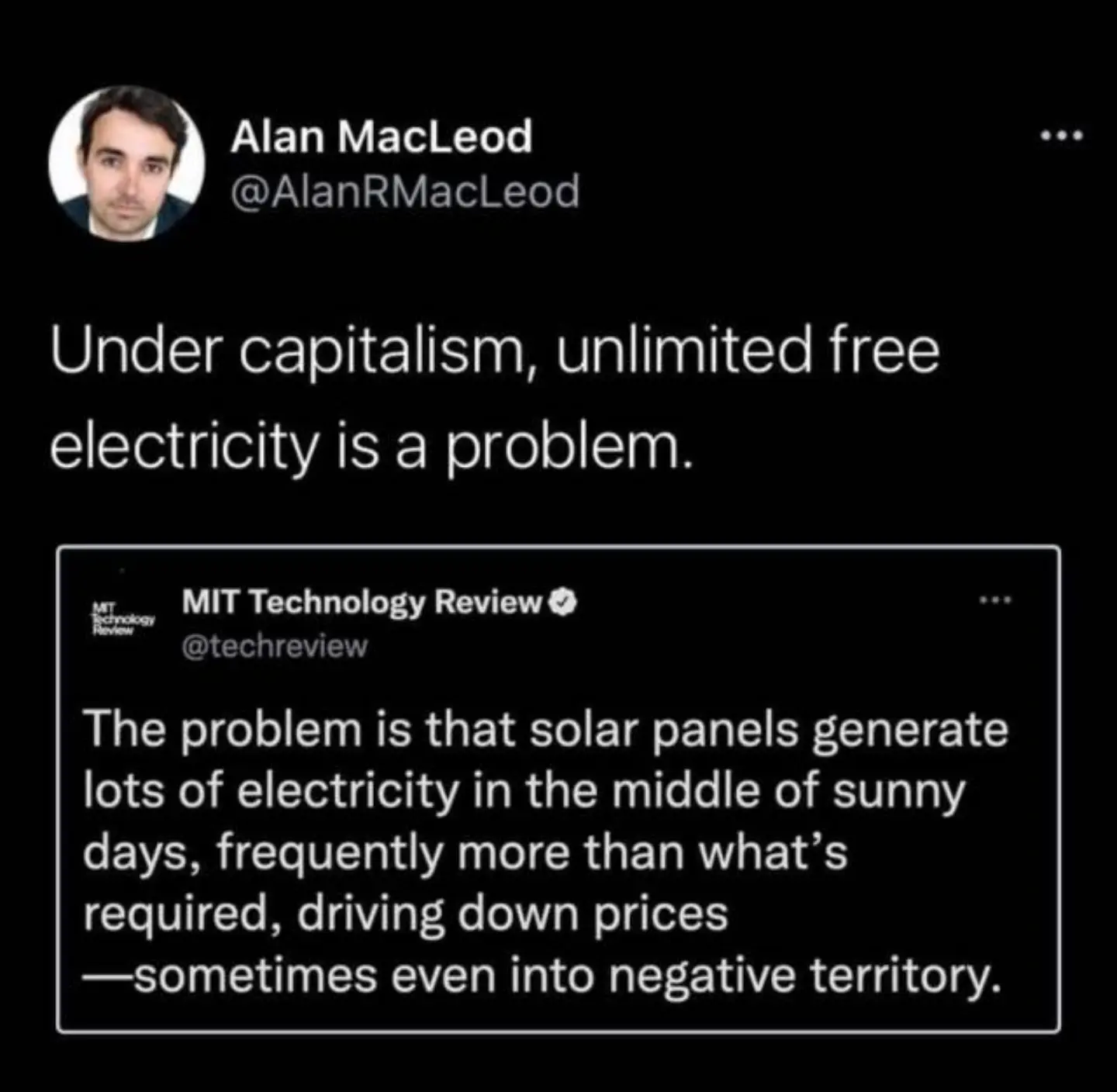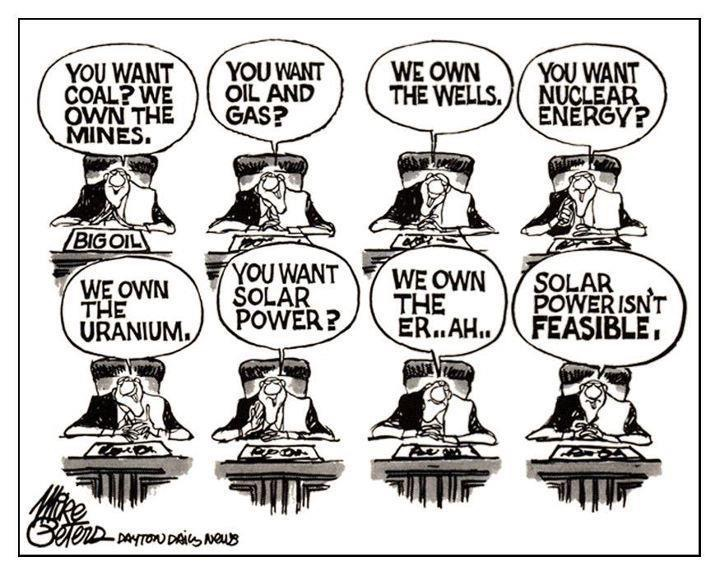I saw some context for this, and the short of it is that headline writers want you to hate click on articles.
What the article is actually about is that there's tons of solar panels now but not enough infrastructure to effectively limit/store/use the power at peak production, and the extra energy in the grid can cause damage. Damage to the extent of people being without power for months.
California had a tax incentive program for solar panels, but not batteries, and because batteries are expensive, they're in a situation now where so many people put panels on their houses but no batteries to store excess power that they can't store the power when it surpasses demand, so the state is literally paying companies to run their industrial stoves and stuff just to burn off the excess power to keep the grid from being destroyed.


